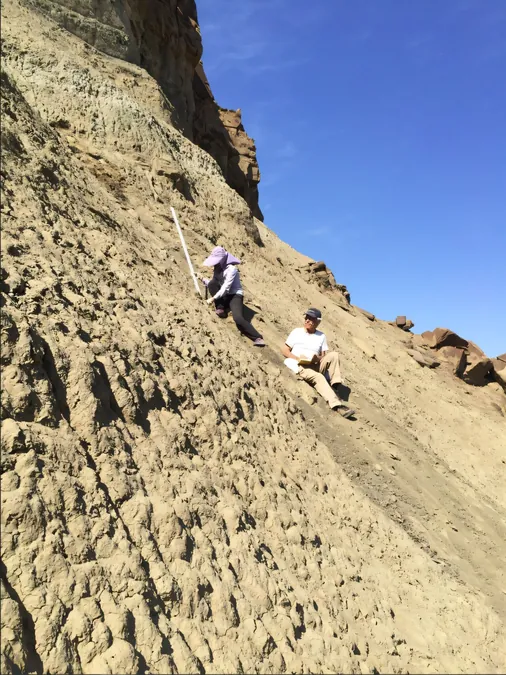
Unveiling Secrets: How Ancient Sediments in China's Junggar Basin Connects Solar System Chaos to Earth's Carbon Cycle
2025-07-02
Author: Amelia
A Groundbreaking Discovery in the Junggar Basin
In a stunning revelation, researchers from the Nanjing Institute of Geology and Paleontology and Columbia University have unearthed vital insights from the ancient sediments of the Sangonghe Formation in China's Junggar Basin. Their groundbreaking study, recently published in the Proceedings of the National Academy of Sciences, reveals the intricate links between chaos in our solar system and the Earth's carbon cycle.
Ancient Records Tell a Story
The multidisciplinary team employed an innovative approach, combining astrochronostratigraphy, sedimentology, geochemistry, and palynology to decode the well-preserved lake sediments. What they discovered was a fascinating shift in the long-term rhythms of Mars and Earth, identified through what’s known as the Mars–Earth grand eccentricity cycle. This cycle dictates the changes in Earth’s orbit from circular to more elliptical forms over millions of years, profoundly affecting our planet's climate and carbon dynamics.
The Surprising 1.6-Million-Year Cycle
Diving deeper, the researchers pinpointed a remarkable 1.6-million-year cycle in the carbon isotope record—an unexpected find that stands apart from the established 2.4-million-year grand eccentricity cycle. This variation illuminates a concept known as solar system chaos, where gravitational nudges among planets can lead to unpredictable shifts in their orbits across vast timescales, significantly expanding our understanding of planetary behavior.
Connecting the Dots to the Jenkyns Event
Additionally, this study casts new light on the Earth's response during the Jenkyns Event, a significant warming period that occurred around 183 million years ago. By linking this climatic anomaly to the newly identified 1.6-million-year cycle, the researchers suggest that the carbon isotope signals from the Junggar Basin reflect fluctuations in atmospheric CO2 driven by past orbital arrangements.
Why Junggar Basin's Sediments Matter
What sets the Junggar Basin apart is its preservation of a more direct representation of global carbon conditions, unlike other marine or deep lake environments where carbon changes can appear exaggerated. This research illustrates how examining ancient sediments can offer invaluable insights not just into planetary dynamics but also into Earth's complex system processes.
A Window to the Past and Future
By delving into the interplay of solar system mechanics and Earth’s climate history, this study not only sheds light on the evolution of our planetary neighborhood but also enhances our grasp of how orbital variations can trigger critical shifts in climate and carbon cycles. This discovery paves the way for further exploration into the intricate dance of celestial bodies and their profound effects on our home planet.









 Brasil (PT)
Brasil (PT)
 Canada (EN)
Canada (EN)
 Chile (ES)
Chile (ES)
 Česko (CS)
Česko (CS)
 대한민국 (KO)
대한민국 (KO)
 España (ES)
España (ES)
 France (FR)
France (FR)
 Hong Kong (EN)
Hong Kong (EN)
 Italia (IT)
Italia (IT)
 日本 (JA)
日本 (JA)
 Magyarország (HU)
Magyarország (HU)
 Norge (NO)
Norge (NO)
 Polska (PL)
Polska (PL)
 Schweiz (DE)
Schweiz (DE)
 Singapore (EN)
Singapore (EN)
 Sverige (SV)
Sverige (SV)
 Suomi (FI)
Suomi (FI)
 Türkiye (TR)
Türkiye (TR)
 الإمارات العربية المتحدة (AR)
الإمارات العربية المتحدة (AR)